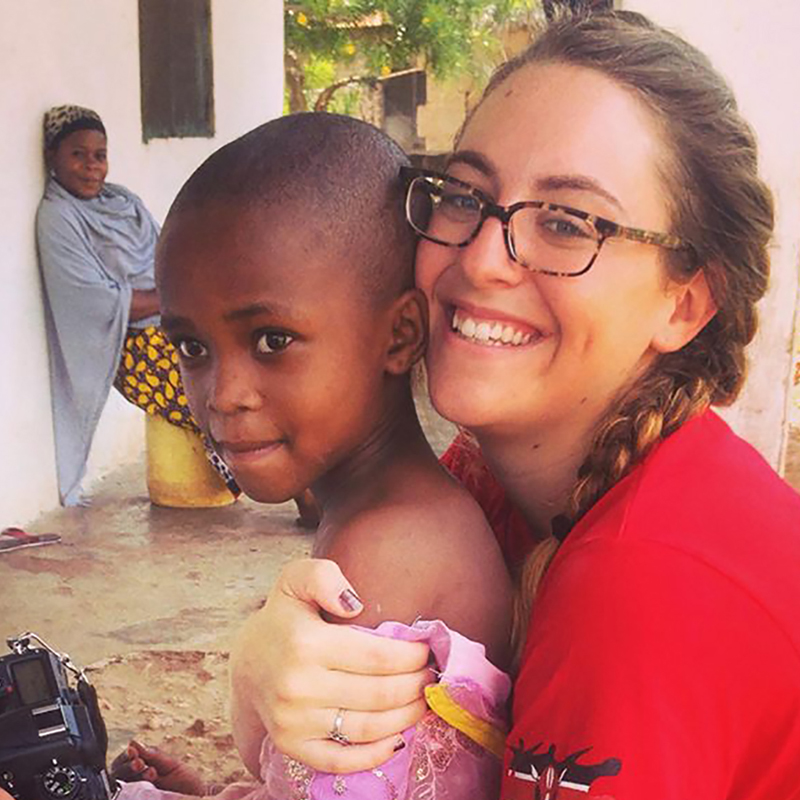Leah Beach: Chronicling dementia’s story, one photo at a time
It’s been a few years since Leah Beach made it her life’s work to chronicle the lives of dementia patients. And one of things she’s learned, she said, is if people in developing countries think something is happening in America, then it must be real.
There’s a really horrible stigma against people with dementia in other parts of the world, said Beach, 25, who has traveled to Kenya, South Africa and Guatemala to photograph dementia patients. Traditional healers, witch doctors, she said, believe the people are cursed, and then they are essentially abandoned.
“They have no money, no help, nothing,” she said. “It’s such a reality, and it’s all just a simple lack of education. That’s all it is. I want to contribute to a complete revitalization of how people view this disease.”
Beach was born and lived in Dover until the age of 14, when she moved to Huntsville, Ala., to live with her dad and go to high school. Her dad still lives in Huntsville. Her mom lives in Hockessin.
Following high school graduation, Beach was drawn back to Delaware and attended the Delaware College of Art and Design. It was for a second-year assignment that Beach started taking pictures of her first dementia patient – her great-grandmother, her dad’s grandmother.
“I would go and visit her every day in the nursing home,” she said. “I watched her just sitting there in her room. There was a sense of waiting to die. That was just the blunt reality.”
Beach, who pays the bills by tending bar at Gary’s Dewey Beach Grill, has done some portrait photography and creating artwork for restaurants and stores around the Cape Region – her colorful designs can be seen at Starboard Raw, Crooked Hammock, and Baked to name a few, she knew the photographs of her great grandmother had struck a nerve when she submitted them for publication in the Photo District News’ annual photo competition. She was one of three American students to have her photo published that year.
“It was amazing. It’s like the New York Times of photography,” she said, admittedly astonished. “There are so many incredible photographers.”
Beach said her success with the photos of her great-grandmother inspired her to find out how people with dementia live in developing countries.
“That just sparked it,” she said. “I was like, ‘I’m just going to do to one.’ So I chose Kenya.”
It wasn’t just as easy as going to Kenya. Beach didn’t have much money, so in 2014 she volunteered for Global Vision International, an organization helping developing countries around the world. The idea, said Beach, is that the volunteers teach the teachers who will be teaching the kids.
“The whole premise is incredible,” she said.
In Shimoni, Kenya, Beach was tasked with teaching locals the signs of malnutrition. She created a handbook that showed the villagers what to look out for. She said it was a project suited for her strengths – graphic design and organization.
“It was great because a project like that has the ability to change the lives of a lot of people,” she said.
After making the handbook, she moved another part of Kenya with no running water or electricity where she helped the villagers create a catalog of their agricultural products to show potential international buyers. The whole point was to make their lives more sustainable, she said.
In the African locations where Beach traveled, care for dementia patients was limited, but the ones doing the care are part of the same circle of world-based volunteers and local doctors. She befriended a few and was able to find patients to photograph.
She said not all the people had been diagnosed with dementia, but there’s a look that’s common.
“They don’t look at you,” she said. “They look through you. Dementia is a really sad disease. It takes away a person’s dignity.”
Stigma and a lack of knowledge aside, another issue, said Beach, is skepticism. At first, people want to make sure the intentions behind the photos are good, she said.
“That’s a big question. Am I going to be making personal gains from this,” she said. “I don’t share patients’ names. People can see I’m passionate about this, and that I’m here for the right reasons.”
Beach, with her unusual combination of idealism and realism, said it’s been slow getting grants or funding for her projects. She said she’s been told her projects aren’t focused enough to garner some of the funding she needs.
“Nobody wants to fund a kid who wants to go across the ocean to take photos of something,” she said.
But that’s changing. She’s been working with Alzheimer’s Disease International and recently traveled to Costa Rica for a conference on the issue in Latin America. In the spring, she’ll be traveling to Japan for 32nd International Conference of ADI.
“I’m really hoping these events give me ideas that will bring more of a focus to my work,” she said. “The idea would be to get enough funding to pay myself a salary.”
Beach said she looks at her camera as a tool. It’s all natural lighting, and there’s no staging, she said.
“It’s life as it happens,” she said. “I’m not doing it for the money or the glory. I’m very passionate about this, and I have the ability to take photographs. People feel comfortable while I’m taking their photo.”
For more on Beach’s story, her project and her photographs, go to www.leahbeach.com.





























































